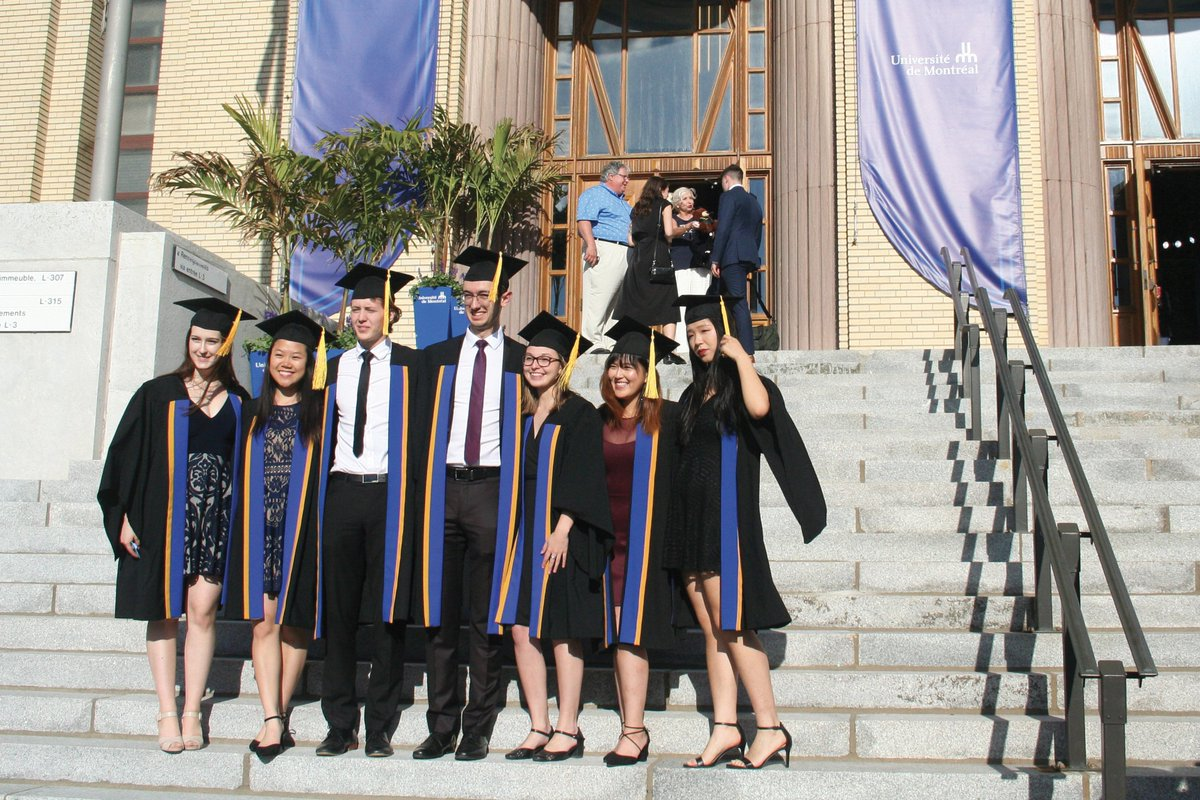Do you want to study law in Canada? Are you looking for the best colleges in Canada to pursue your master’s in law? Then look no further because, in this article, you’ll find the best 5 colleges for masters in law in Canada.
Every year, more and more people are choosing Canada as their study destination to pursue their masters in law. But why Canada? The reason why most people are choosing Canada as their study location isn’t difficult to see. First of all, Canada is a country of stunning natural beauty and friendly people. Institutions in Canada offer students state-of-the-art residential and educational services—major colleges and universities in Canada offer world-class law courses covering different specializations with tremendous exposure and global networking opportunities. What’s more, compared to their counterparts in the US or UK pursuing masters (LLM) in Canada is affordable.
If you have made up your mind to further your law studies in Canada then in this guide, you’ll find a list of the best 5 colleges for masters in law in Canada.
What is the LLM?
Master of law or LLM (Latin Legum Magister) is a postgraduate course (usually considered as a direct successive course to an LLB) that is made for individuals seeking expertise in a particular field of law such as International Law, Corporate Law, Criminal Law, Business Law, Environmental Law, etc.
The LLM is mostly offered as a two-year course that prepares lawyers to become courthouse lawyers or for legal practice with organisations. Just like every other law program or course, it’s a skilled-oriented program and students pursuing the course ought to have basic knowledge of the law of the land as well as various corporate nuances and legal instances.
Requirements to study Masters in Law Canada
Before you’ll be able to further your studies in law in Canada, there are a few requirements you’d have to meet. In this section, you’ll find some of the requirements that are required in order to pursue your masters in law in Canada.
- You must hold a Bachelor’s Degree in Law (LLB) from a recognized school of law or its equivalent. Leading universities in the country require students to have a grade of at least 7.0 over 10 (70%) in order to be eligible for their postgraduate program.
- You’ll have to provide your English proficiency test scores of IELTS/PTE/TOEFL, etc., together with Letters of Recommendation (LORs) and Statement of Purpose (SOP).
- You’ll have to apply for a valid VISA with the Canadian authorities to study in Canada. Note, your VISA must be valid throughout the course duration (including internships in any).
- For students who want to apply for internships or work part-time, they’ll have to get an approved work permit from the respective authorities and also adhere to the work hour limit prescribed by their chosen institute of learning.
- Depending on your chosen university or college, the course requirement may require you to appear for and pass the LSAT or GRE.
- In order to practice law in Canada, students must complete their J.D (Juris Doctor) degree as part of their formal education.
Why should you study LLM in Canada?
Why study in Canada? What makes them a popular study location? It can’t only be the quality education, right? Of course, it isn’t just the quality education they offer. In this section, I’ll be revealing the top reasons why Canada has become and remained a popular study location for international students pursuing LLM.
- Law students in Canada can qualify to receive various financial aid to help reduce the cost of studying abroad. The aid can be in the form of student loans offered by the university and the Government of Canada. Additionally, there’s also the option of schooling part-time which means that you can work while in school.
- Having an international degree makes students have a better experience and widens the field of study in the eyes of recruiters or employers which boosts the student’s employability.
- Studying in Canada makes it easy for you to start practising law in the country professional. In addition, it also makes it easy to earn permanent residency or citizenship in the country.
- Lawyers in Canada are well paid. According to jobbank.gc.ca, lawyers residing in Toronto earn anything between 47,000 CAD to 427,500 CAD yearly. While their counterparts in Montreal earn a median salary of 99,130 CAD annually.
Documents required for LLM in Canada
When filling out the online application form for your chosen university’s portal or website, you’ll be required to attach the following documents to your application.
- Official Transcripts
- CV / Resume
- Plan of Study (for course-based program) or Thesis Proposal (for thesis-based program)
- Test scores for the entrance exams to study in Canada
- Statement of Purpose
- Two letters of reference
- Financial Assistance Application
Best 5 colleges for Masters in Law In Canada
Now you have an understanding of what the LLM program in Canada entails, its benefits and its requirements, let’s look at the best 5 colleges for masters in law in Canada.
1. University of Toronto (Faculty of Law)

The University of Toronto (also known as, I UToronto or U of T) is a public research university located on the grounds that surround Queen’s Park in Toronto, Ontario, Canada. The University of Toronto is a collegiate university and as such, it comprises eleven colleges, each college has substantial autonomy on financial and institutional affairs and significant differences in history and character.
The University of Toronto offers more than 700 undergraduate and 200 graduate programs (of which LLM is one of them). The University of Toronto ranks #16 in the world according to the World University Rankings 2022 while ranking as the top university in Canada.
The university offers LLM programs to international students covering several topics such as Business Law, Legal Theory, Criminal Law, and many others.
2. McGill University (Faculty of Law)

McGill University (also known as McGill) is another public research university situated in Canada precisely in Montreal, Quebec. Interestingly, McGill University is one of the two members of the Association of American Universities situated outside the US; the other being the University of Toronto. In addition to that, the university is the only Canadian member of the Global University Leaders Forum (GULF) within the World Economic Forum.
McGill has the highest average entering grades of any Canadian university and offers diplomas and degrees in more than 300 fields of study. The university is also ranked among the world’s top universities by major publications around the world. Due to its strong reputation, the university is sometimes referred to as being the “Harvard of the North”.
McGill University is one of the only three English-language universities in Québec. However, law undergraduates in the school are required to be at least passively bilingual in both English and French but you don’t have to worry about that since LLMs in the university are exempted from that rule.
3. University of British Columbia (Peter A. Allard School of Law)

The University of British Columbia (also known as UBC) is a public research university with campuses in Kelowna and near Vancouver, British Columbia. The institute of learning was established in 1908 and is currently one of the universities in British Columbia.
The University of British Columbia ranks among the top three universities in Canada and has an annual research budget of $759 million, the university funds over 8,000 projects annually. What’s more? The university is home to TRIUMF. TRIUMF is Canada’s national laboratory for particle and nuclear physics—the laboratory houses the world’s largest cyclotron.
If you are interested in furthering your studies in Common Law then UBC is the place for you. In addition to offering students quality and foundational training in common, the university also helps students work through coursework requirements to practice law in the country. Asides from Common Law, the university also offers LLM in Taxation.
4. University of Montreal (Faculté de Driot)

The University of Montreal (in French, it’s known as Université de Montréal) is a French-language public research university located in Montreal, Quebec, Canada. The institution of learning comprises thirteen faculties with over sixty departments and two affiliated schools (the Polytechnique Montréal and the HEC Montréal).
The university offers over 650 undergraduate and graduate programs, as well as 71 doctoral programmes. Since the University of Montreal is a French-speaking university, its LLM courses favour French-speaking applicants more. However, the university offers LLM in Business Law for English-speaking applicants who’d love to study in the school.
5. Queen’s University (Faculty of Law)

Queen’s University at Kingston, popularly known or regarded as Queen’s University or in some cases Queen’s, is a public research university situated in Kingston, Ontario, Canada. The institute of learning is made of eight faculties and schools.
Queen’s University is a co-educational institute with over 131,000 alumni living worldwide and 23,000 students. The university has been running the law program since 1861. Students who are studying LLM programs at this university can complete their programs between nine and twelve months. Interestingly, LLM students in the university may be opportune to complete some courses at a castle in England.
Asides from the general LLM program, Queen’s offers LLM in Political and Legal Thought for students who are interested in legal theory and legal philosophy.
There goes our list of the best 5 colleges for masters in law in Canada.

